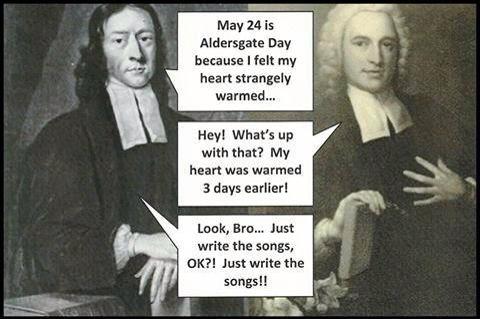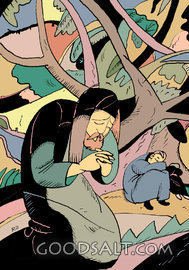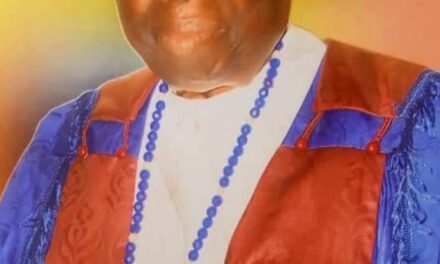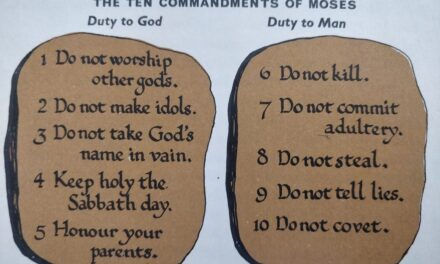Methodism emerged from John and Charles Wesley’s Pentecostal and evangelical experiences in May 1738, 280 years ago. Charles, the younger brother of John experienced his evangelical conversion on Pentecost Sunday May 21, three days afterwards John also was able to believe to the salvation of his soul at a Moravian society meeting in a room on Aldersgate Street in London. A pre-Pentecost Charles ‘sterile and unproductive poetry and hymnody’ experienced a decent of the Holy Spirit. Among his post-Pentecost hymns, ‘O, that l had a thousand tongues to sing my Great Redeemers’s praise; And Can it be that I should Gain; Where shall my wondering soul begin?’ testify to the power of the Holy Spirit over human’s helplessness. One can be involved in mission work and trips, yet be consumed by a deep spiritual void. John and Charles experienced the void in the American colonies. Charles’ Pentecost experience not only served as a transforming but a renewing impetus towards John’s experience on May 24th thereby the two brothers walked and worked in similar Pentecostal and evangelical path because, ‘an assurance was given…’ them. From the Wesleys’ ‘heartwarming’ experiences, Pentecost points to change and harvest of souls through evangelism. Personal Pentecost could change any ‘child of wrath and hell … to become’a child of God.’
The reflection is that every wondering souls or preachers, declining churches could begin again through personal Pentecost (rebirth). Pentecost fire consumes our decline and finality to ashes – ashes to ashes, dust to dust theology. Ashes of decline or barrenness do not have the final say over us, the Fire of Energy of God’s love ‘comes to bless, to call, to inspire, to give to us what we could never begin to imagine on our own.’ 2018 Pentecost Sunday incorporate the Wesleyan heritage as an opportunity for a new beginning, ‘Thy Kingdom Come,’ through spiritual rebirth (Jn 3:5). Personal Pentecost is the soul of Methodism and it challenges our present decline and church closures. The Methodist records and events of May 21 and 24, 1738 challenge the present generation to reconsider our faith affirmation in the Holy Spirit every time we recite the Creed. According to John Owen, ‘every time we say we believe in the Holy Spirit, we mean we believe that there is a living God able and willing to enter human personality and change it.’ Do we really believe Methodist belief? If we believe, have we received the Holy Spirit? The problem is that, one can recite without believing or receiving it hence, we have many Methodists within the Methodist and Christians within the Church. The fruit of our neglect of the Holy Spirit is the secret of the church decline and society’s moral decadence.
Charles Spurgeon said, ‘a church in the land without the Spirit is rather a curse than a blessing. If you have not the Spirit of God, Christian worker, remember that you stand in somebody else’s way; you are a fruitless tree standing where a fruitful tree might grow.’ Charles and John Wesley were fruitful trees and a blessing to their generation. Today, the Church is very rich in the theology of Holy Spirit, but according to Samuel Chadwick, ‘there is a dearth of conversion … the signs of death abound.’ We need a ‘living consciousness of His presence and power.’ Methodist Pentecost at 280 calls us to a personal Pentecost as the basis to our corporate spiritual rebirth, and remedy to our decline and empty pews, so as to become ‘converting furnaces.’ Resurrection opened the grave but found the disciples ‘shivering behind closed doors’; ascension opened heaven for the Holy Spirit to descend upon the disciples to preach with boldness with sign and wonders. Pentecost as the conclusion of the Easter cycle of spirituality (fiftieth day after Easter) makes the difference with the decent of the Holy Spirit.
At 280 of Methodist Pentecost and beyond our present sense of hopelessness and helplessness, Ezekiel’s poetic and metaphor of the lamenting bones of the people and wrought from that image the vision of the valley of dry bones, God is calling us to cast a prophetic and redemptive vision for people of God’s Energy of love at work in our lives. Indeed “Our bones are dried up.” Our soul winning bones are dried up, we need repentance and deliverance in order to avoid God’s judgement. Pentecost News is a good news of ‘Thy Kingdom Come,’ which culminates with these words: “I will put my spirit within you, and you shall live, and I will place you on your own soil.” God is calling us back from the exile of decline, from the exile of pride and unbelief in to His Redemptive love. The Theological symbolism in the poetic and prophetic narrative of the Valley of dry bones is multidimensional in relation to the three meanings of spirit (as in God’s spirit), wind and breath, the Redemptive Energy that makes ‘God’s promise of return from exile ring in the ears of the deportees.’
Beloved, ONLY with God’s spirit, anything is possible. Without it, our existence, preaching and leadership are just flesh and blood which profit nothing and can never inherit God’s Kingdom (Act 2:1-47). No one address the crowd in the energy of man or by reasoning of man. Ask Peter, Paul or Wesley. God is saying to the church, “Hope is not lost. Though in the valley of despair or death, God will not leave us for dead but will give us new life and restore our hope.” Our Spiritual skeleton can dance again beyond every power in the water and air of our culture that poisons marriages, homes, and declines churches. As people of Pentecost, let us allow the Spirit to use us like Wesley and others “to tell the world what’s wrong but we do this ever and only with hope in our voices.”
Let us pray, according to Ezekiel, for the Breath of God. The Breath of God comes into you and I and begins to live in us. You and I have four parts to ourselves. We are made with body and we have minds and we have emotions and we have a spirit living inside of us. Let us pray for the Spirit of God to come inside of us. The Spirit of God enters our minds affects the way we think about our life. The Spirit of God enters our emotions and affects the way we feel about ourselves and others. The Spirit of God enters our physical body and affects our actions and what we do for others and ourselves.
HAVE YOU RECEIVED THE HOLY SPIRIT SINCE YOU BELIEVED? Acts 19:2











Recent Comments